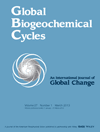
GLOBAL BIOGEOCHEMICAL CYCLES
Scope & Guideline
Advancing our understanding of Earth's intricate systems.
Introduction
Aims and Scopes
- Carbon Cycle Dynamics:
Research on carbon cycling processes in terrestrial, freshwater, and marine ecosystems, including mechanisms of carbon sequestration, emissions, and the impacts of climate change on carbon dynamics. - Nutrient Cycling and Stoichiometry:
Exploration of nitrogen, phosphorus, and other nutrient cycles, focusing on their interactions, transformations, and effects on ecosystem productivity and health. - Trace Element Biogeochemistry:
Studies on the distribution, cycling, and ecological impacts of trace elements in various environments, including oceans, soils, and freshwater systems. - Impact of Climate Change on Biogeochemical Processes:
Investigations into how climate change influences biogeochemical cycles, including feedback mechanisms and adaptations of ecosystems. - Modeling and Data Integration:
Development and application of models to simulate biogeochemical processes and assess the impacts of anthropogenic activities, utilizing data from various observational platforms. - Regional and Global Assessments:
Comprehensive assessments of biogeochemical cycles at regional and global scales, addressing issues such as land use change, pollution, and conservation strategies.
Trending and Emerging
- Climate Change and Carbon Sequestration:
There is an increasing focus on understanding how climate change affects carbon sequestration in various ecosystems, including forests, wetlands, and oceans, emphasizing the need for adaptive management strategies. - Interconnectedness of Biogeochemical Cycles:
Emerging research highlights the interconnectedness of various biogeochemical cycles, such as the interactions between carbon, nitrogen, and phosphorus, and their collective impact on ecosystem health. - Remote Sensing and Data Integration:
The use of remote sensing technologies and big data analytics to monitor and assess biogeochemical cycles is gaining momentum, allowing for more comprehensive and real-time assessments. - Anthropogenic Impacts on Biogeochemical Processes:
There is a growing emphasis on studying the effects of anthropogenic activities, such as urbanization and industrialization, on biogeochemical cycles and ecosystem services. - Restoration Ecology and Biogeochemistry:
Research focusing on the role of biogeochemical processes in ecosystem restoration efforts is on the rise, particularly in understanding how to enhance carbon storage and nutrient cycling in degraded ecosystems.
Declining or Waning
- Historical Analysis of Biogeochemical Changes:
Research focusing on historical biogeochemical changes over centuries is becoming less prominent, with a shift towards more real-time data analysis and immediate impacts of current environmental changes. - Microbial Processes in Soil Carbon Dynamics:
Although microbial interactions within soil carbon dynamics have been important, the focus has shifted towards broader ecosystem-level studies, leading to a decrease in specific microbial process studies. - Localized Pollution Studies:
Research dedicated to localized pollution impacts on biogeochemical cycles has seen a decline as more attention is directed towards global assessments and trends of biogeochemical cycles. - Traditional Agricultural Practices and Their Biogeochemical Impacts:
Studies on traditional agricultural practices and their historical impacts on biogeochemical cycles are waning in favor of innovative agricultural practices and their sustainability implications. - Static Models of Biogeochemical Processes:
There is a noticeable decline in the use of static models for biogeochemical processes, with a growing preference for dynamic, integrated modeling approaches that account for variability and change.
Similar Journals
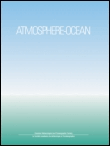
ATMOSPHERE-OCEAN
Exploring the Depths of Climate ScienceATMOSPHERE-OCEAN is a premier peer-reviewed journal published by Taylor & Francis Ltd, dedicated to advancing the fields of atmospheric science and oceanography. Since its inception in 1963, this journal has served as a crucial platform for researchers, professionals, and students, facilitating the dissemination of significant findings and innovative methodologies in understanding the complex interactions between the atmosphere and the ocean. With its journal ranking in the Q3 category for Atmospheric Science and Q2 for Oceanography as of 2023, along with its Scopus rankings, ATMOSPHERE-OCEAN maintains its relevance by addressing current topics such as climate change, hydrology, and ocean circulation patterns. For those seeking to contribute to or stay informed about the latest research in these critical fields, ATMOSPHERE-OCEAN is an invaluable resource that combines rigorous scholarship with practical implications for environmental management and policy.
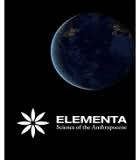
Elementa-Science of the Anthropocene
Transforming knowledge into action for a thriving planet.Elementa: Science of the Anthropocene is an esteemed Open Access journal published by University of California Press, dedicated to advancing interdisciplinary research that addresses the complexities of the Anthropocene epoch. Since its inception in 2013, it has established itself as a leading platform for the dissemination of innovative ideas across several disciplines, including atmospheric science, ecology, environmental engineering, geology, geotechnical engineering, and oceanography, achieving Q1 status in each of these fields as of 2023. With an impact factor reflecting its significant contribution to the scholarly community, Elementa ranks favorably in various Scopus categories, being placed in the 88th percentile in Earth and Planetary Sciences for both Geology and Oceanography. The journal's open-access model ensures that valuable research findings are accessible to a broader audience, fostering collaboration among researchers, professionals, and students dedicated to tackling pressing environmental challenges. Located in Oakland, California, Elementa continues to uphold a mission that underscores the importance of sustainable solutions and comprehensive understanding of the Anthropocene.
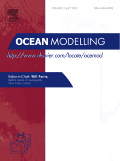
OCEAN MODELLING
Pioneering Interdisciplinary Approaches to Ocean Understanding.OCEAN MODELLING, published by Elsevier Science Ltd, is a leading journal dedicated to advancing the understanding of ocean systems through innovative modeling techniques and interdisciplinary research. With an ISSN of 1463-5003 and E-ISSN 1463-5011, this journal is esteemed within the fields of Atmospheric Science, Computer Science (Miscellaneous), Geotechnical Engineering and Engineering Geology, and Oceanography, as reflected by its impressive quartile rankings in 2023, including Q1 in Oceanography and Q1 in Computer Science. Researchers and professionals benefit from the journal’s high-impact contributions, as indicated by Scopus rankings that place it among the top-tier publications in its categories. Although not an open-access journal, OCEAN MODELLING provides essential insights and methodologies crucial for both academic and practical applications, facilitating knowledge transfer and innovation among marine scientists, engineers, and policy-makers engaged in vital ecological studies and technological advancements regarding our oceans. Join the forefront of marine modeling research by contributing to and exploring the wealth of knowledge presented in OCEAN MODELLING.
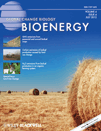
Global Change Biology Bioenergy
Advancing Sustainable Solutions for Global ChangeGlobal Change Biology Bioenergy, published by WILEY, is a leading peer-reviewed journal that focuses on the interplay between biological processes and bioenergy production, contributing significantly to the fields of agronomy, forestry, and environmental sustainability. Established in 2009, this Open Access journal, based in Germany, has gained recognition in the academic community, boasting impressive quartile rankings in 2023: Q1 in Agronomy and Crop Science, Forestry, Renewable Energy, Sustainability and the Environment, and Waste Management and Disposal. With its rigorous publication standards and commitment to disseminating vital research, Global Change Biology Bioenergy ranks highly in various Scopus categories, ensuring that cutting-edge studies reach a broad audience. By providing a platform for innovative research, the journal fosters collaboration and knowledge exchange among researchers, professionals, and students dedicated to tackling the pressing challenges posed by global change and the future of bioenergy.

Earth System Dynamics
Transforming Understanding of Earth's Complex ProcessesEarth System Dynamics is a premier academic journal dedicated to advancing our understanding of the intricate interactions within the Earth system, encompassing atmospheric, hydrological, geological, and biological processes. Published by COPERNICUS GESELLSCHAFT MBH in Germany, this Open Access journal has been fostering scholarly communication since its inception in 2010, allowing unrestricted access to vital research findings. With an impressive Impact Factor and a ranking of #7 out of 195 in the field of Earth and Planetary Sciences, as well as being categorized in the Q1 quartile, Earth System Dynamics stands at the forefront of its discipline. Researchers, professionals, and students alike benefit from its comprehensive scope, which covers various aspects of Earth system science and its implications for climate change and sustainability, making it an indispensable resource for anyone invested in the environmental challenges of our time. As the journal continues to converge remarkable insights up to 2024, contributors and readers alike are encouraged to engage with this vital ongoing conversation.

ISME Communications
Advancing Environmental Microbiology for a Sustainable FutureISME Communications is an esteemed journal dedicated to advancing the field of environmental microbiology and its multifaceted intersections with ecology, biogeochemistry, and biotechnology. Published by SpringerNature, this journal aims to disseminate cutting-edge research and innovative insights that address pressing global challenges through interdisciplinary approaches. With a commitment to open access, it provides a platform for researchers, professionals, and students to share their findings widely, fostering collaboration and knowledge exchange. Although the journal is relatively new, its potential for impactful contributions is substantial, making it an essential resource for anyone interested in the microbial processes that underpin ecosystem functioning and sustainability. The journal not only prioritizes the rigorous peer-review process but also supports the academic community's pursuit of excellence in environmental science.

ECOSYSTEMS
Connecting research to real-world ecological solutions.ECOSYSTEMS, an esteemed journal published by SPRINGER, stands at the forefront of ecological research with a distinguished Q1 quartile ranking in multiple categories, including Ecology, Evolution, Behavior and Systematics, and Environmental Chemistry for 2023. Founded in 1998, the journal has become crucial for advancing our understanding of ecosystem dynamics and interactions, offering researchers a platform to disseminate significant findings relevant to ecological health and sustainability. Although Open Access is not available, the journal maintains a robust reputation, evidenced by its high Scopus rankings—placing it within the top 10% in diverse ecological domains. With a publication scope that spans fundamental and applied aspects of ecosystems, ECOSYSTEMS serves as an essential resource for professionals and students pursuing innovative ecological solutions, making it indispensable for contributing to the global conversation on environmental sustainability. For more information, please visit the publisher's site or access your institution's library resources.
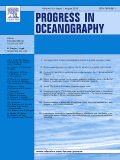
PROGRESS IN OCEANOGRAPHY
Navigating the Frontiers of Marine ExplorationPROGRESS IN OCEANOGRAPHY is a pivotal journal published by PERGAMON-ELSEVIER SCIENCE LTD, dedicated to advancing the field of oceanographic research and exploration. With an ISSN of 0079-6611 and an E-ISSN of 1873-4472, this esteemed publication has been disseminating significant findings from 1963 and continues to be a cornerstone in aquatic sciences and geology, holding a distinguished Q1 ranking in both categories as of 2023. The journal primarily focuses on innovative research that contributes to our understanding of ocean processes, marine ecosystems, and the impact of human activities on the oceans. Its exclusive access model facilitates the dissemination of high-quality content that resonates with researchers, professionals, and students alike, ensuring that vital insights are accessible to the global scientific community. With a firm commitment to upholding rigorous scientific standards, PROGRESS IN OCEANOGRAPHY remains an influential platform for the communication of groundbreaking research, providing scholars with invaluable resources to drive future oceanographic studies.
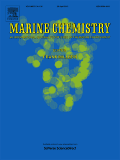
MARINE CHEMISTRY
Transforming Marine Science with Cutting-Edge ResearchMARINE CHEMISTRY, published by Elsevier, is a premier international journal that has been at the forefront of advancing knowledge in the fields of chemistry, oceanography, and environmental science since its inception in 1972. As indicated by its impressive impact factor and its numerous Q1 rankings in Chemistry, Oceanography, and Water Science and Technology for 2023, the journal is a vital resource for researchers and professionals dedicated to addressing critical issues related to marine environments and their chemical dynamics. The journal publishes high-quality research that explores various aspects of chemical processes in aquatic systems, aiming to bridge the gap between theoretical studies and practical applications. With a significant emphasis on interdisciplinary work, MARINE CHEMISTRY serves as a platform for sharing innovative research findings that contribute to the sustainability and health of marine ecosystems. Although it is not an open-access publication, its comprehensive repository of scholarly articles remains accessible through institutional subscriptions, providing limitless opportunities for growth and discovery in the field.

Biogeosciences
Connecting ecosystems and geology through innovative research.Biogeosciences, published by COPERNICUS GESELLSCHAFT MBH in Germany, is a prestigious open access journal that has been a leading platform for innovative research since its establishment in 2004. With an impressive impact reflected in its Q1 rankings within both the Earth-Surface Processes and Ecology, Evolution, Behavior and Systematics categories, it caters to a diverse readership encompassing researchers, professionals, and students engaged in the life sciences and earth sciences. The journal's commitment to disseminating high-quality research is evident from its exemplary Scopus rankings, highlighting its role in fostering advancements and discussions in biogeoscience. With full open access options, readers worldwide can freely explore significant findings that contribute to our understanding of ecological and geoscientific principles. As the journal converges into its next decade, it continues to be an essential resource for those seeking to bridge the disciplines of biology and earth sciences.